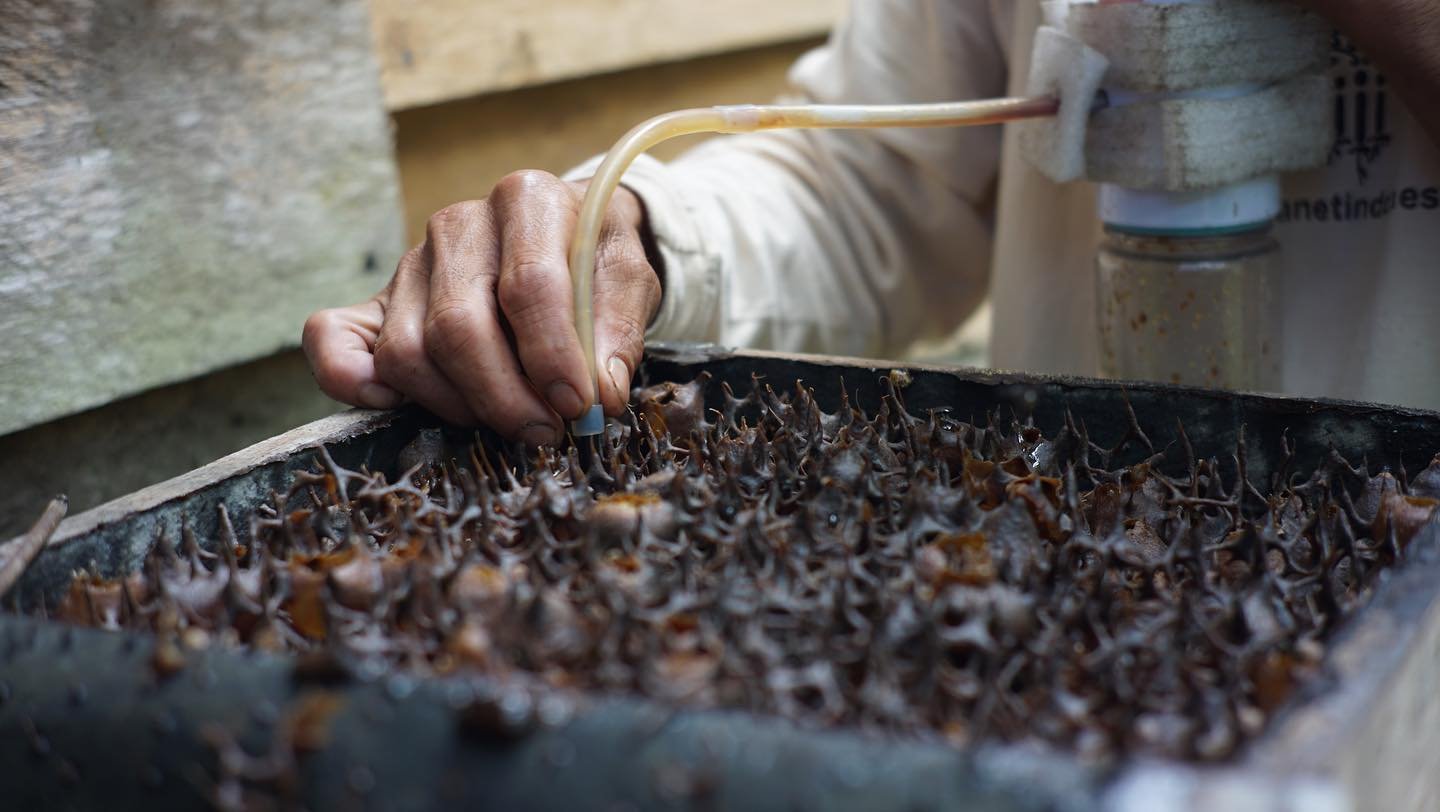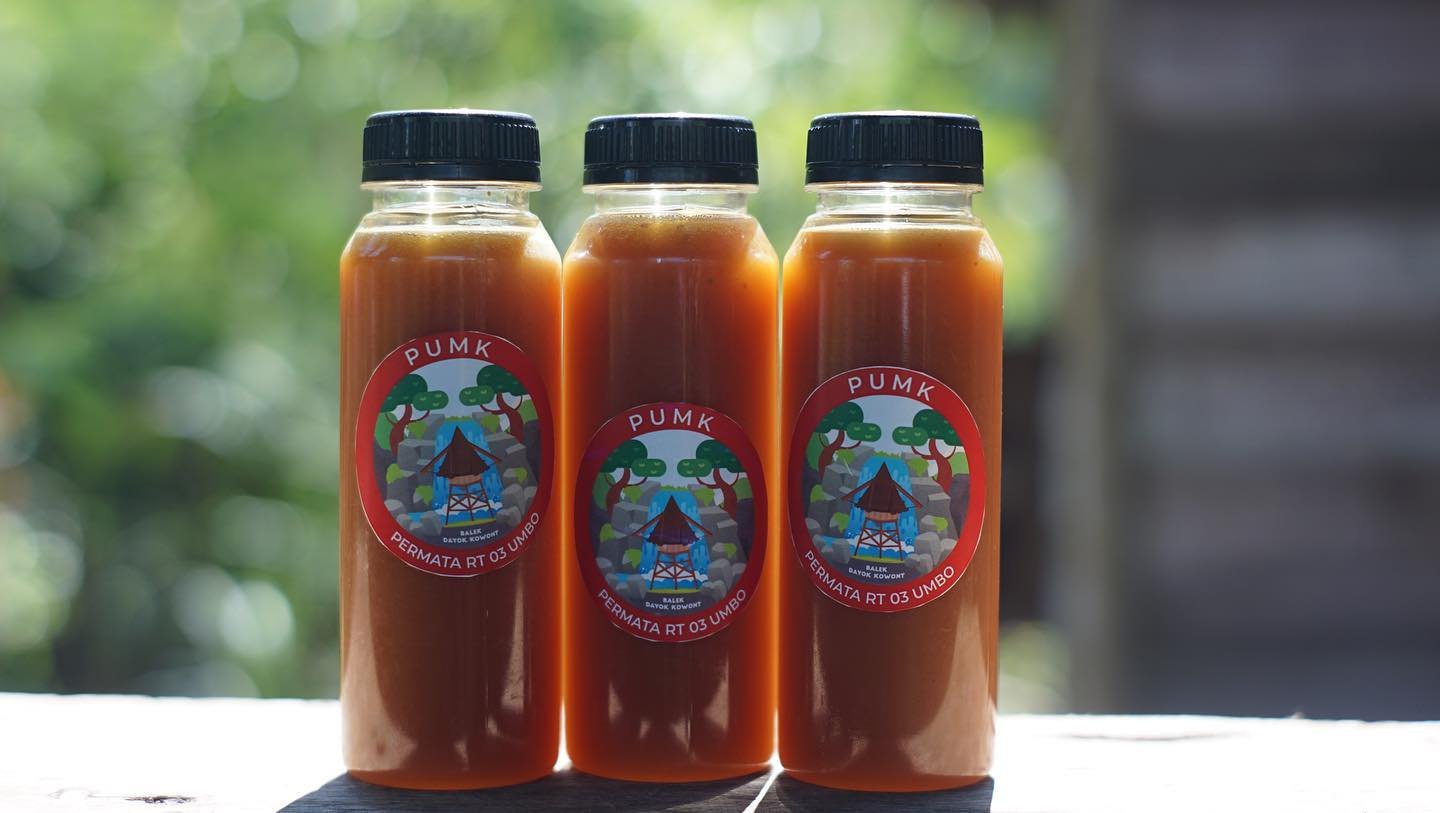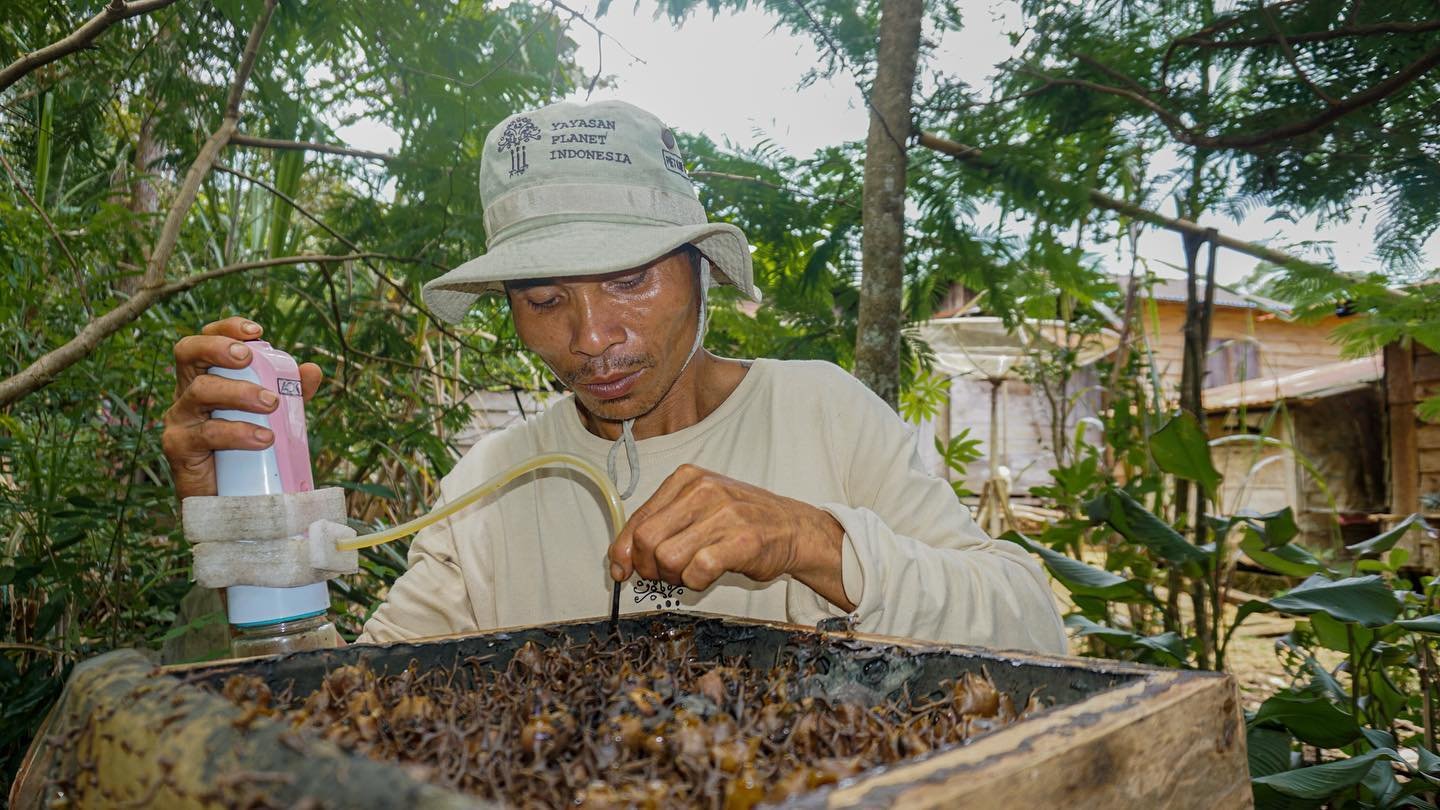VIDEO: The Bee Keepers of Umbo
The forest honey produced by the itama honey bee is some of the best that can be tasted. It’s rich, sweet, and unique in flavor as it is transformed from the nectar of many flowering plants in the biodiverse forests of Gunung Niut, Borneo. However, this story is not all sweet. These bees are getting harder to find, the forest where they live is being cut down, and the people living amongst them have historically been sidelined. Often lacking access to basic services and opportunities to diversify livelihoods, it has left some with no other choice than to turn to poaching and unsustainable use of the land and forests to meet their basic needs. As natural resources are depleted, life in the forest gets harder and a vicious cycle deepens a communities’ growing inability to meet basic needs leading to further pressures on the forest culminating in spiraling poverty.
In order to reverse this cycle, we partner with villagers to design programs based on our holistic core model approach that improves economic opportunities and protects forests. In 2019, we worked with our conservation cooperative partners in Umbo village and a beekeeping expert Pak Abdurahman to develop their stingless bee project, a livelihood development initiative that aims to provide community members with an alternative source of income. We had seen some of our other partner villages have success with itama honey bee cultivation and proposed the idea to the residents of Umbo, a village nestled within the Gunung Nyiut Nature Reserve. We began by trying to source the bees and building just one beehive with the aim of setting up a full apiary (a collection of 13 beehives) by the end of the year.
The journey, its frustrations, and fruition to create the first apiary were documented in a five-part short film series (you can watch below). It tells the story of the skills needed to find the perfect queen bee and her hive within a dying tree in the forest, and to rehome them in the specially designed apiary. As Umbo village is in a protected area, it is important we only look for bees in dying trees, those that would collapse on their own and not cut down any flourishing trees. Our objective, after all, is to reduce deforestation.
Watch the vlogs and read on to take see how the project has progressed in 2022.
This work is done in partnership with BKSDA.
While the short film series only covers the first five days of this initiative - the setting up of the beehive and sharing the knowledge and skills developed by the community - the work is not over then. It takes time - around 3 months - for the hives to settle and start producing enough honey to harvest. In that time, Umbo community members are caring for bee populations, learning how to sustainably harvest in a way that does not harm the bees and leaves enough honey in the hive for them to continue their life cycle. Then to establish a commercial business, community members are working to package and distribute the honey for sale in the market as a non-timber forest product.
In 2019 we helped create one beehive and now we are proud to say there are 21 beehives in Umbo, all of which are producing around 500-750 ml of honey per month, and community members have started bottling and selling their product. There is huge potential for this biodiversity-based economy, and it is one we champion. It not only helps with food security, nutrition - the hives also produce pollen, a superfood - and regenerative livelihoods for communities, but it also benefits the environment through pollination generating further ecosystem services for people and wildlife.
“The presence of YPI in Mengkalang Jambu Village is felt to be very beneficial for the community. We have learned many things. Before, we didn’t understand that stingless bees could be cultivated. Now since YPI came, we know how to raise stingless bees. YPI’s existence in Mengkalang Jambu Village provides the community with a lot of benefits. ”
Beehives for life and the Borneo rainforest.
You can help set up more beehives in partner villages, providing tools, skills training, and ongoing support for communities to start itama honey beekeeping and other enterprises that provide a biodiversity-based livelihood and give back to the forests.
If you have any questions please reach out via admin@planetindonesia.org. Follow us on our social media Facebook here and Instagram here to get timely updates on our activities, an insider’s look into the lives of front-line conservationists, and ongoing programs.








